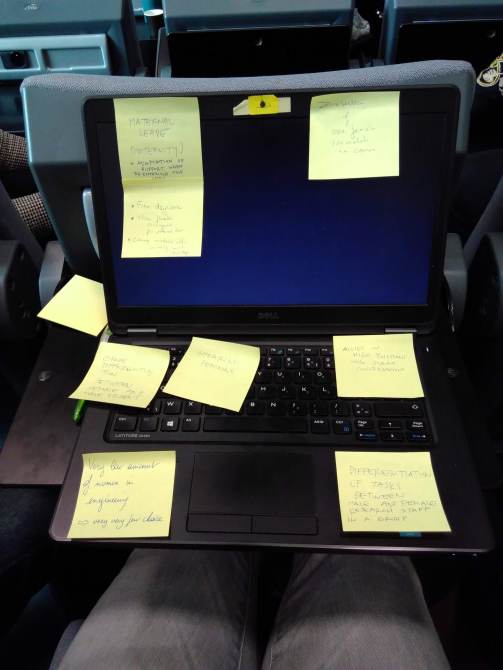Last week, we concluded the 2019 edition of our doctoral course.
On Thursday, we met in Brussels at KULeuven, campus Brussel.
We started the day with a session on the topic of ‘Publish and/or perish’. The session was opened by our very own Freek Van Deynze. Freek gave us a general overview of the current state of academia in Flanders, with a special focus on the relation between the funding of the universities and publication pressure. Jon Tennant provided a passionate plea for Open Science (and against greedy publishers such as Elsevier, and related evils such as the journal impact factor). Consistent with his plea for Open Access, Jon’s presentation at our course can be found here. Next, Reine Meylaerts, vice-rector of research policy at KULeuven, talked about the societal impact of research and the complexity related to its assessment. We concluded the session with a general discussion, in which our participants shared their experiences.


In the afternoon, we held a session on gender and diversity. Nellie Konijnendijk informed us about the ubiquity of implicit bias, and ways it could be addressed. The session included a practical exercise, in which the participants reflected on ways to make academia more inclusive.


In the evening, we organized a public debat in collaboration with Muntpunt. With Barbara Van Dyck as moderator, we shared our thoughts on the challenges posed by climate change and the role that the universities could/should play in addressing these issues. Our panel consisted of Anneleen Kenis, Chloé Verlinden, Mohamed Al Marchohi, and Tom Cox. Anneleen Kenis is an interdisciplinary geographer, with a background in political/ human ecology, sustainable development and psychology. Chloé Verlinden represented Students4Climate. She is a Master student in Urban Studies (VUB-ULB), with a background in political sciences and anthropology. Mohamed Al Marchohi is currently working for GO! as an energy and climate policy advisor. In the past he worked for the Social-Economic Council of Flanders (SERV), he also conducted research in the field of Energy- and Environmental Economics at the University of Antwerp. Tom Cox is a civil engineer, he is currently working as a post-doctoral researcher at the University of Antwerp, where he is affiliated to the Ecosystem Management research group. He was affiliated with the recent scientists4climate movement and has also been involved in other forms of climate activism (e.g. GroeNoord). The panelists provided their perspective on the issues at hand. One of the main points under discussion was the role of academics. Mohamed stated that part of the problem is that a lot of people are still not convinced that climate change is a problem. It therefore remains an important taks for academics to inform the public. Tom doubted whether this was the central problem, and countered that facts do not necessarily lead to action. He also voiced his doubts about the role of academia. First, academics are not special, they are just ordinary citizens. Moreover, academics (according to him) are bad agents of change. On an institutional level, he observed that universities do not make change happen. The lack of radical actions taken by universities [1] is a slap in the face of climate scientists. Chloé also noted a lack of action and mobilization amongst professors, but added that this was a problem in the student population as well. According to Anneleen, the lack of action taken by the universities themselves is especially disappointing given the fact that the measures to be taken are actually quite clear. Anneleen further applauded Students4Climate for their commitment, but had reservations about the way in which Students4Climate and Youth4Climate presented climate change as a future threat, whereas the consequences of climate change are already being felt, especially in the more vulnerable regions of the world. This led to a discussion of the issue of (white) privilege in relation to climate change.

On Friday, we met in Ghent for the session hosted by Ghent University. This day focused on action. The morning session was organized by Omar Jabary Salamanca and Siggie Vertommen, who are both involved in the slow science network (and have organised the seminal edition of this doctoral course). Omar gave a short presentation on the roots and history of slow science. Siggie talked about slow science as a feminist issue. Siggie and Omar had invited Shiri Shalmy to give a presentation about antiuniversity. After that, we analyzed the landscape of the university and reflected on a better university and ways in which it could be attained.

In the afternoon, we were given action training by Vredesactie/Tractie.

For us as organizers, this year’s course was a success again.
We will be back next year.
See you then!
Slow Science Network
PS [1] An open letter by academics has just been published on vrtnws. It calls for universities to do more to address climate change.

